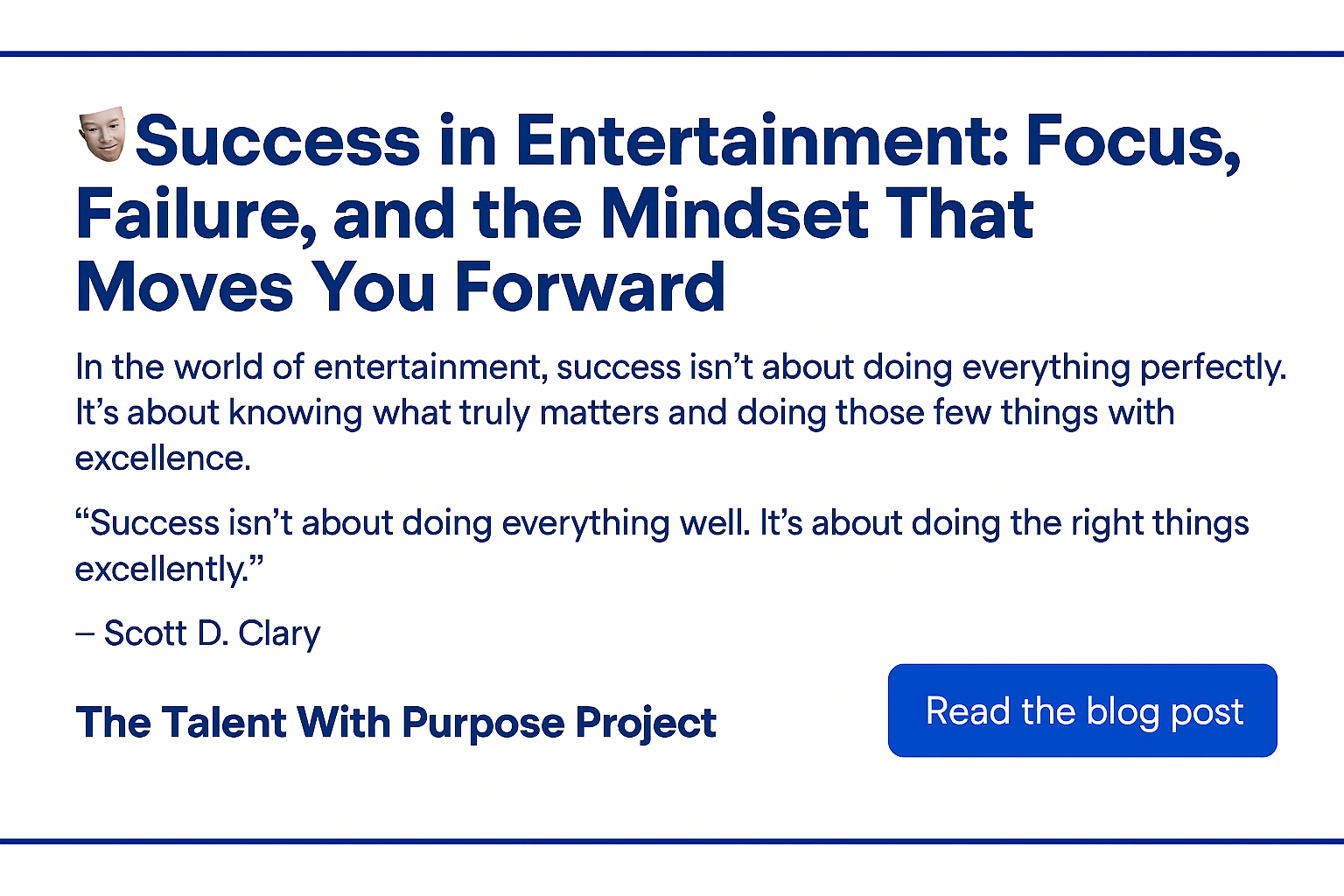Very often, singers wonder why they aren’t progressing at
the pace that they’re expecting or hoping to. They find themselves treading
water, so to speak, stuck with the same technical limitations and problems that
they’ve been stuck with for months or maybe even years. It’s frustrating and
discouraging, to say the least.
There are numerous reasons why aspiring singers might be
progressing slowly, or not at all. But what I’ve found in the vast majority of
cases of singers whose skills aren’t steadily improving is that there is a lack
of mindfulness in how they’re approaching their voice training. When singers
are not being intentional about their voice use and their practice habits, they
tend to meander and are apt to apply technical concepts inconsistently and/or
incorrectly, which leads to slowed, stalled, or even regressed progress.
“If we hope to see changes in our singing for the better, we
need to actively change what we’re currently doing. Change is a prerequisite
for improvement.”
Although sometimes casual singing is exactly what we feel
inspired to do and what feeds our souls in the moment, simply ‘singing’ (using
our voices for mindless music making) while crossing our fingers that our
unfocused vocalizing is going to lead to improvement is not going to help us
achieve the desired results. Instead, if we hope to see changes in our singing
for the better, we need to actively change what we’re currently doing. Change
is a prerequisite for improvement. We need to practice with the intention of
making deliberate adjustments to our existing technical approach to singing. If
we’re not being intentional, we will find ourselves doing the same things in
the same ways that we’ve always done them… and achieving the same undesirable
results. We will intuitively default to the coordination that we’ve habituated.
The primary focus of voice training should be the undoing of former,
unproductive, inefficient ways of using our voices and the adoption of new,
more productive and effective habits.
How do we demonstrate and improve mindfulness in our voice
training?
1. Accurately
assess our training needs and goals. Once we have an idea of the areas of our
technique and artistry that require the most attention and the type and level
of singing that we’re aspiring to, we’ll be able to come up with a practice
plan that’s designed to help us reach our goals. Then, we write these training
goals down in a journal that we can refer back to every so often as part of
tracking our progress and keeping us on track. Sometimes singers have
difficulty knowing where to begin because they can’t precisely pinpoint the
nature of their vocal challenges. A qualified voice teacher who has experience
in helping many different types of singers with a variety of training needs and
goals can help.
2. Make a
detailed training plan. Once we know what needs to be adjusted, we need to
figure out how to adjust it. This is where a skilled voice teacher who is well
versed in vocal function and can diagnose and demonstrate is invaluable. Using
a journal or calendar, we can create a daily practice plan that includes the
specific exercises that we might have been assigned by our singing teachers and
the specific areas of our technique that they’re designed to address. This will
keep our practice times more organized, focused, and efficient. Our training
plan will need to be revised periodically as we begin to master certain
fundamental technical skills and are ready to take on the next set.
3. Practice with
focus… and without distraction. This means that, while we’re in the technical
‘renovation’ phase of voice training, we analyze what we’re doing in every
moment, on every note. We listen intently to the vowel that we’re forming, and
we analyze its quality, purity, resonance balance, and consistency of
definition (how we’re shaping it from start to finish). We pay attention to how
our throats, tongues, and jaws are feeling. We stop and start again when we’re
not coordinating our voice effectively so that we’re not reinforcing poor
habits. When the coordination is right for the first time, we repeat the scale
or exercise, drilling the skill, in order to solidify the coordination into our
working technique. We take our time, resisting the urge to rush ahead before
we’ve mastered (or are closer to mastering) that particular note, vocal phrase,
or technique. And… we turn off our phones and find a time and space for
practicing without interruption or worry that we’re going to be disturbing
others. The more divided our attention, the more inefficiently well be
practicing and the slower our progress is likely to be.
4. Track
progress. Tracking our progress by recording our lessons and private practice
sessions, writing down our pitch ranges and any skills that we were able to
execute effectively for the first time, and taking note of any changes (for
better or worse) in our voice quality, vocal health, physical comfort while
singing, or skillfulness will provide us with trackable progress and objective
confirmation that we’re on the right track.
5. Invest in
voice lessons. Perhaps the most intentional action that we can take is to
invest in voice lessons with a skilled singing teacher. Aspiring singers who
attempt to ‘go it alone,’ employing books, blogs, forums, YouTube videos, and
prerecorded programs (courses) as their teachers often find themselves confused
and overwhelmed by the abundance of information on singing and myriad of
training methods that exist. They either don’t know where to begin or have
incorrect ideas of what their training needs are and then find themselves
working on the wrong things or the right things in the wrong order, misapplying
technical concepts, and expending a great deal of time and effort only to make
little to no progress. Voice teachers are trained to know what to listen and
watch for, how to determine the root causes of vocal limitations and/or
pathologies, (rather than merely addressing symptoms directly), and how to
systematically build the voice and safely and effectively teach technical
skills.
Although thinking about and paying attention to every little
detail while we’re studying voice might initially seem as though it would take
the enjoyment out of singing, in actuality, mindfulness encourages faster
results and greater success, which in turn frees us up to be the vocal
technicians and artists that we’ve always wanted to be. And since careless
application of technique can lead to tension, pain, strain, or voice injuries,
it’s in our best interest to be intentional about our voice use at every step
of the way. In time we’ll find that, much like riding a bike was difficult and
precarious until our bodies figured out and memorized how to consistently and
readily balance atop two wheels, most aspects of vocal technique that initially
require intense focus and analysis will become second nature. We’ll be able to
transition from thinking and analysis to emoting and spontaneous expression.
But early on in our training, if we wish to see results, we will need to devote
some mental energy to our physical endeavours. We will need to assess, plan,
practice, track progress, and study until we reach our goals and become the
singers that we aspire to be.
Source: Singwise

















